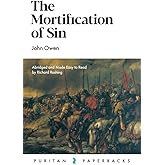
Download the free Kindle app and start reading Kindle books instantly on your smartphone, tablet, or computer - no Kindle device required.
Read instantly on your browser with Kindle for Web.
Using your mobile phone camera - scan the code below and download the Kindle app.

The Pleasures of Exile (Ann Arbor Paperbacks) Paperback – October 9, 1992
Purchase options and add-ons
Through a series of interrelated essays, The Pleasures of Exile explores the cultural politics and relationships created in the crucible of colonization. Drawing on Shakespeare’s The Tempest and C. L. R. James’s The Black Jacobins, as well as his own fiction and poetry, Lamming deftly locates the reader in a specific intellectual and cultural domain while conjuring a rich and varied spectrum of physical, intellectual, psychological, and cultural responses to colonialism. “My subject,” he writes, “is the migration of the West Indian writer, as colonial and exile, from his native kingdom, once inhabited by Caliban, to the tempestuous island of Prospero’s and his language. This book is a report on one man’s way of seeing.”
- Print length264 pages
- LanguageEnglish
- PublisherUniversity of Michigan Press
- Publication dateOctober 9, 1992
- Dimensions5.25 x 0.9 x 8 inches
- ISBN-100472064665
- ISBN-13978-0472064663
Book recommendations, author interviews, editors' picks, and more. Read it now.
Frequently bought together

Frequently purchased items with fast delivery
Product details
- Publisher : University of Michigan Press (October 9, 1992)
- Language : English
- Paperback : 264 pages
- ISBN-10 : 0472064665
- ISBN-13 : 978-0472064663
- Item Weight : 14.4 ounces
- Dimensions : 5.25 x 0.9 x 8 inches
- Best Sellers Rank: #1,366,705 in Books (See Top 100 in Books)
- #5,156 in African American Demographic Studies (Books)
- #7,144 in Literary Movements & Periods
- #135,097 in Biographies (Books)
- Customer Reviews:
About the author

Discover more of the author’s books, see similar authors, read book recommendations and more.
Customer reviews
- 5 star4 star3 star2 star1 star5 star82%11%7%0%0%82%
- 5 star4 star3 star2 star1 star4 star82%11%7%0%0%11%
- 5 star4 star3 star2 star1 star3 star82%11%7%0%0%7%
- 5 star4 star3 star2 star1 star2 star82%11%7%0%0%0%
- 5 star4 star3 star2 star1 star1 star82%11%7%0%0%0%
Customer Reviews, including Product Star Ratings help customers to learn more about the product and decide whether it is the right product for them.
To calculate the overall star rating and percentage breakdown by star, we don’t use a simple average. Instead, our system considers things like how recent a review is and if the reviewer bought the item on Amazon. It also analyzed reviews to verify trustworthiness.
Learn more how customers reviews work on AmazonTop reviews from the United States
There was a problem filtering reviews. Please reload the page.
- Reviewed in the United States on November 10, 2018Great read so far. Fast shipping
- Reviewed in the United States on July 12, 2016A brilliant inquiry in literary form into the essence of the largely underestimated issue of identity and west-centrism.
- Reviewed in the United States on May 21, 2016it was like new. I love it
- Reviewed in the United States on January 25, 2008This book was interesting and well written, weaving the themes of slavery and oppression with the characters of a Shakespeare play. Although I admire the author's perseverence with the theme, I found it tiring and often hard to get into. I read it for a class and can't say I would've given it a second glance otherwise.
- Reviewed in the United States on December 16, 2008Although published in 1960, this collection of essays still carries vast currency. This is a fantastic example of "historical revisionism" in that Prospero and Caliban have their relationship subverted and reformulated. As a descendant of slaves and the product of Western culture (he convincingly makes the case that all of us are either the latter or both), George Lamming realizes that we can't reject our past, but only grow from realizing what it means to us. Out of this tradition we can forge towards a hopeful future, neither forgetting nor refusing to let go of history. We have a responsibility to act for a better future, and Lamming articulates this in myriad splendid ways, through what he says is "one man's experience."














